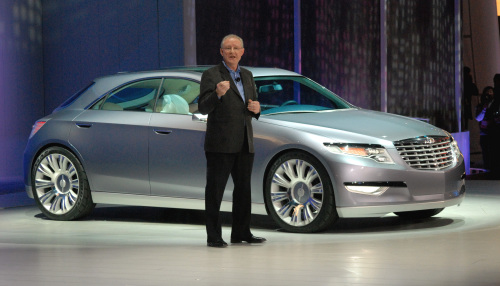
By Mark DeCambre
TheStreet.com Senior Writer
The much-anticipated ouster of embattled CEO Stan O'Neal may have left Merrill Lynch's (ML - Cramer's Take - Stockpickr) investors with more questions than answers.
Not least of these questions is what sort of firm Merrill will be after it has identified who will lead the high-profile U.S. securities firm.
The firm's rapid firing of O'Neal Tuesday morning came a week after the firm announced huge losses in collateralized debt obligations and other shaky paper, to the tune of nearly $8 billion. The firm announced a loss of $2.2 billion, or $2.85 a share, for the quarter -- nearly six times the size of the loss O'Neal had projected earlier in the month.
O'Neal will be nothing if not well compensated for his failure. He will walk off with about $90 million in stock, $40 million in options and another $30 million in pension and other goodies.
But even more resounding than the losses and the loot was the feeling that O'Neal had badly tainted the collegial culture at Merrill by overseeing mass firings and rooting out friends and foes alike in the executive suite.
"Everybody was appalled at how he threw the culture away and how he rewrote history," Win Smith Jr., former chairman of Merrill Lynch International, told TheStreet.com. "I think we're happy that this chapter is over."
How the next chapter will look for Merrill is anyone's guess. Richard Bove, analyst at Punk Ziegel, and other banking analysts predict that more billion-dollar writedowns could be in the offing for the securities firm. The firm will certainly need to do some housecleaning to right the ship in the post-O'Neal era.
Since scuttlebutt about O'Neal's ouster emerged late last week, Wall Street has speculated on possible candidates, including Bob McCann, head of Merrill's wealth management group, Gregory Fleming, co-president and COO at Merrill, Larry Fink, CEO of Merrill's 49%-owned affiliate BlackRock (BLK), and NYSE Euronext (NYX) chief John Thain.
Merrill has pledged to search for a full-time successor to O'Neal. The firm named Brera Capital managing partner Alberto Cribiore as its interim nonexecutive chairman. Directors have not, however, named a timetable for finding a new CEO.
Smith, whose father was one of the founding partners at Merrill, hopes that the board of directors will seek some guidance from alums in selecting a new CEO.
"I hope they will reach out to a few people that have great credibility," says Smith, who is now CEO of the firm that owns Sugarbush Resort in Warren, Vt. "Nobody here is looking for a job. ... We're here to see the firm do well."
Some issues beyond the firm's leadership remain in play. Analyst Michael Mayo at Deutsche Bank says that ousting O'Neal has created a period of limbo. Any number of things could happen -- including the perhaps improbable scenario of Merrill being acquired. That may seem unlikely given the possibility of billions more in mortgage-security related writedowns. Nevertheless, Middle Eastern firms and foreign entities may be emboldened by the opportunity to bag at least a stake in the broker.
Mayo estimates that Merrill could be valued at between $100 and $120 a share -- well above the stock's recent trading in the mid-60s.
Bruce Foerster, president of South Beach Capital and a former Lehman Brothers banker, says Merrill will need to restore investor confidence and make yeoman's effort to improve risk management. The new CEO "is going to have to have a come-to-Jesus meeting with all his senior management," he comments.
"The most effective CEO has to be able to accept news that they don't want to hear and the top people reporting to him have to be able to deliver news that they don't want to deliver," he adds.
Despite the shaky outlook, Smith foresees better times ahead for Merrill. "My take is it's an extraordinarily strong franchise with very good brand," Smith says. "What it requires now is the right leader."
One of the main things the board should consider -- whether it picks the consensus favorite Fink or the internal favorite McCann, or someone else -- is the history of the firm, which was founded in 1914.
Smith says the board "did not have a good knowledge of the history of the firm," he comments. "They need to understand the history of a successful firm before they became custodians."


